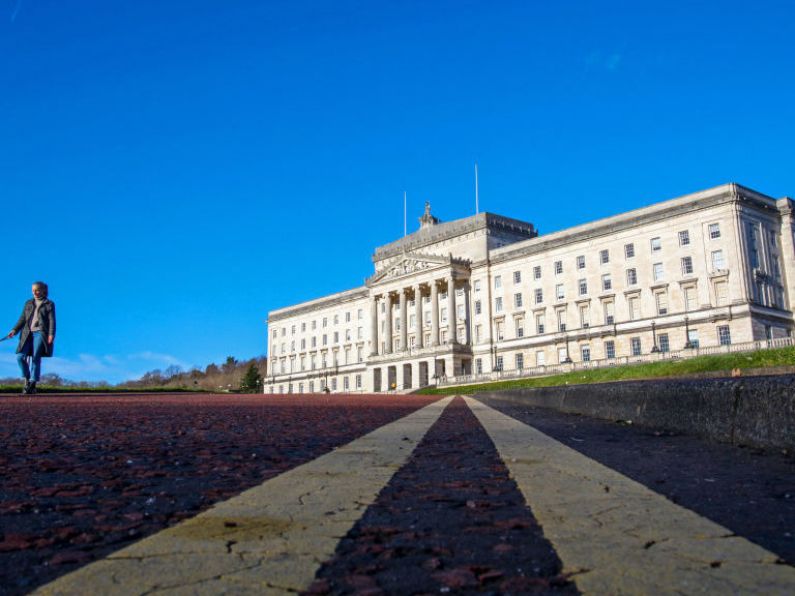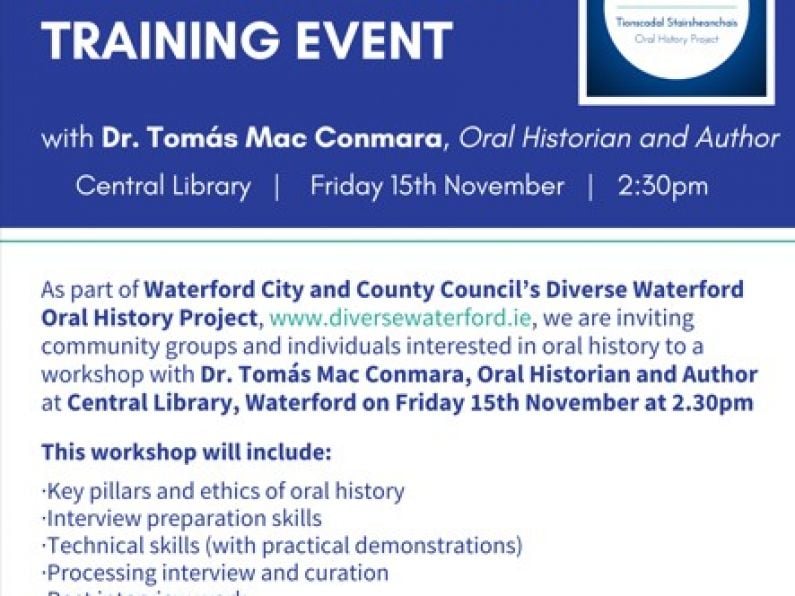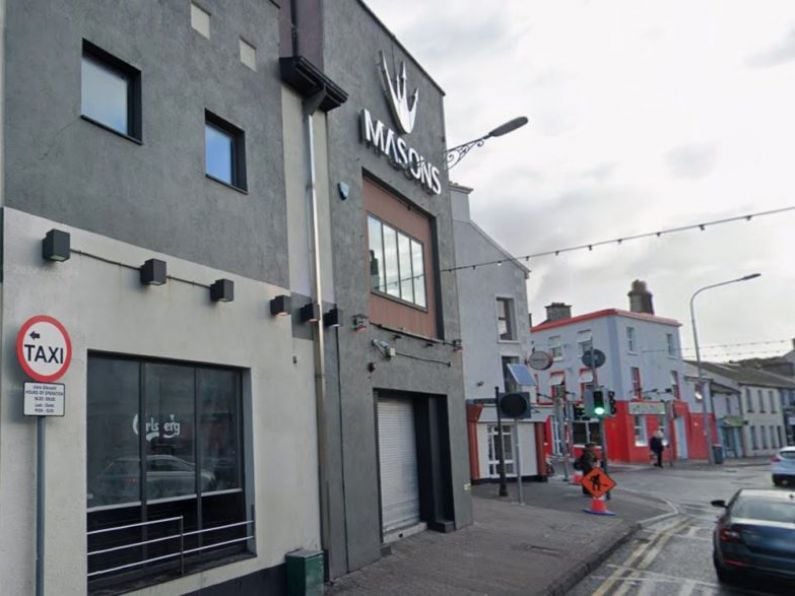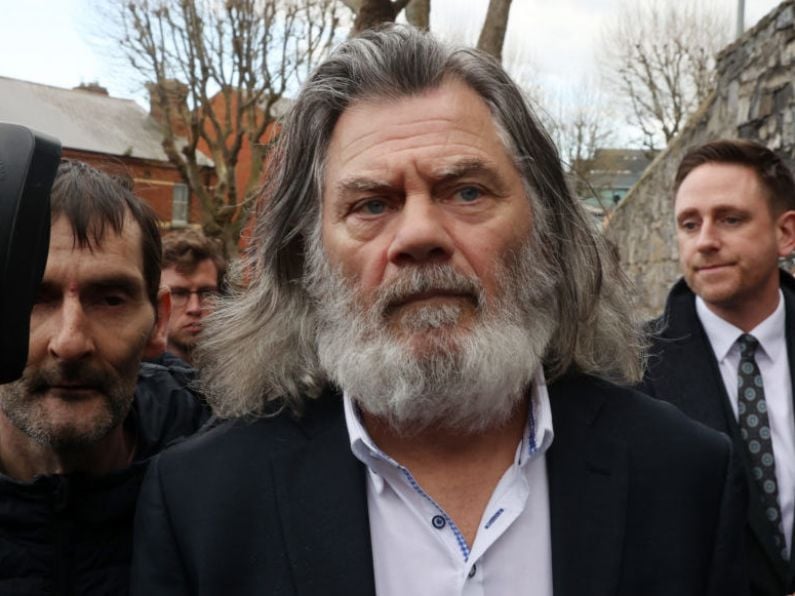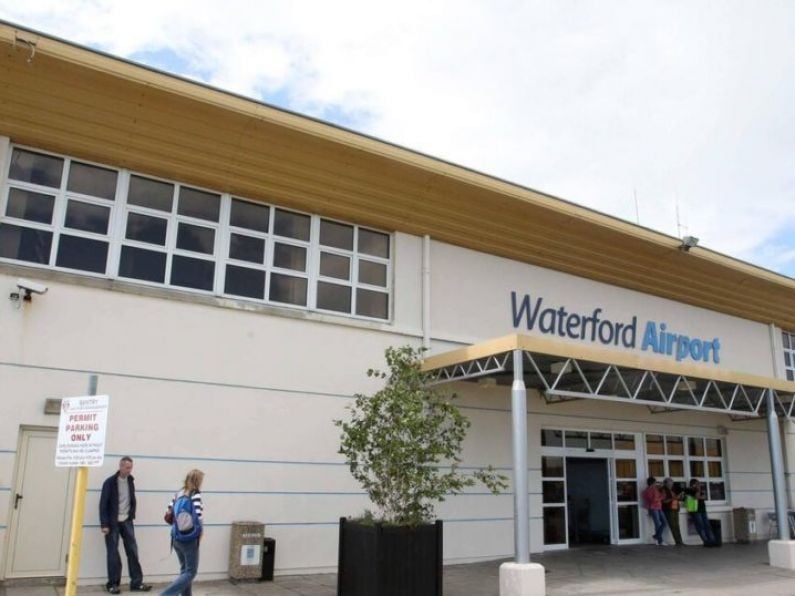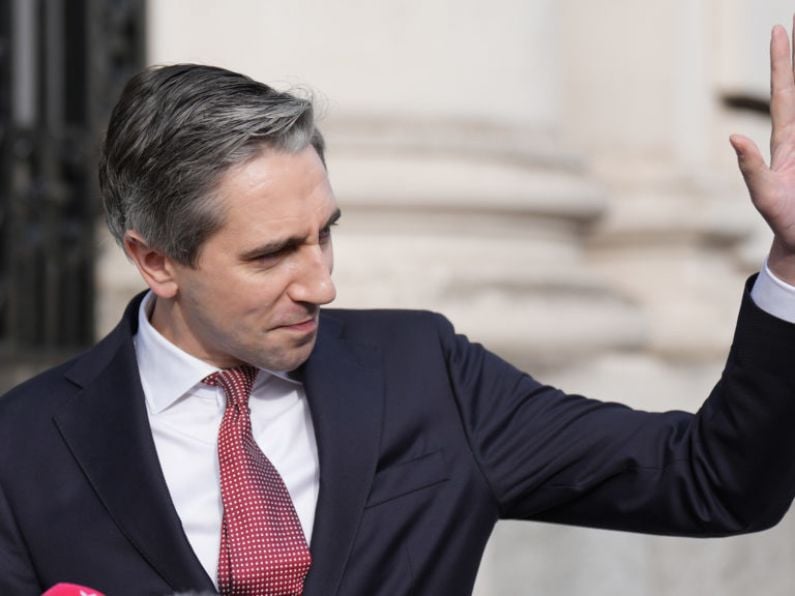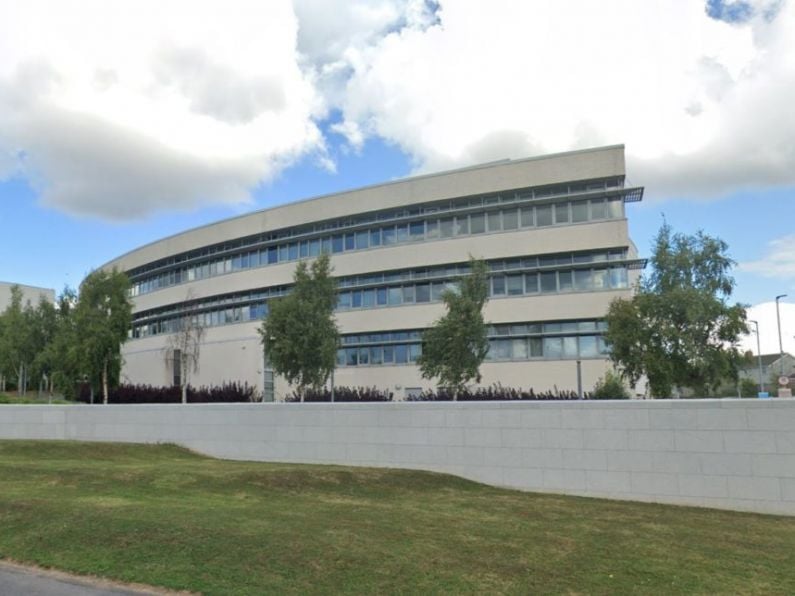Michelle O'Neil has become the first Nationalist First Minister as Stormont returned for the first time in two years after it was collapsed by the DUP.
MLAs took their seats in the Assembly chamber on Saturday in a historical day for Northern Ireland.
Follow our updates here as Ministers are announced.
The final ministers to be announced at the Northern Ireland Assembly were Aisling Reilly (Sinn Fein) and Pam Cameron (DUP), who will serve as junior ministers in the Executive Office.
Meanwhile, SDLP MLA Matthew O’Toole will be leader of the Opposition.
The nomination of ministers has resumed at the Northern Ireland Assembly.
Sinn Fein nominated Caoimhe Archibald as Minister for Finance before the DUP nominated Gordon Lyons as Minister for Communities.
The UUP nominated Robin Swann to return as Health Minister.
Sinn Fein then nominated John O’Dowd as Minister for Infrastructure, and the Alliance Party nominated Andrew Muir as Minister for Agriculture, the Environment and Rural Affairs.
Sinn Féin MLA Conor Murphy was nominated as minister for the economy, with DUP MLA Paul Givan nominated as education minister.
Alliance leader Naomi Long has been appointed as Justice Minister for Northern Ireland.
The Assembly has now adjourned.
Northern Ireland Secretary Chris Heaton-Harris has described a “great day for Northern Ireland”.
He addressed media in the Great Hall in Stormont following the nomination of First Minister Michelle O’Neill, Deputy First Minister Emma Little-Pengelly and Speaker Edwin Poots.
“It’s a great day for Northern Ireland, it’s a great day for everyone here, a great day for businesses across this place and public services here,” he said.
Minister for Foreign Affairs Micheál Martin has hailed a “special day for the people of Northern Ireland” as devolved government is revived.
The Tánaiste also congratulated the First Minister Michelle O’Neill and Deputy First Minister Emma Little-Pengelly on their appointments.
“I wish them both well in what will be very demanding roles. I look forward to working with them, and with their Executive colleagues,” he said.
“I also want to congratulate Edwin Poots on his election as Speaker of the Assembly.”
Mr Martin said Northern Ireland “faces a number of real challenges”.
“While the last few weeks and months have focused on restoring the Assembly and Executive, the hard work now begins in earnest.
“Northern Ireland faces a number of real challenges,” he said.
“An Executive working collectively – and prioritising real, everyday needs over questions of identity – can meet these challenges.
“The Government stands ready to support the work of the Executive and to work in partnership with the British Government in this.”
Ms Little-Pengelly said there must be no dominating from any side to another, calling for a “new approach of recognising the concerns of each other and finding solutions together”.
“We are all born equal and the people who look on this sitting today demand us to work together,” she said.
“Michelle is an Irish Republican, and I am a very proud unionist. We will never agree on those issues but what we can agree on is that cancer doesn’t discriminate on our hospitals need fixed.
“Let us be a source of hope to those young people watching today, not one of despair.
“Let us prove that difference is something that can be a strength through recognition and respect. That difference need not to be a barrier to progress and delivering.
“This is my pledge. I love this place we call home. I will work tirelessly for delivery for all the people of Northern Ireland from every background. I will do so with the best of my abilities honoured by the privilege and opportunity to do so.
“Let’s do it side by side and let’s keep Northern Ireland moving forward.”
Ms Little-Pengelly said she grew up with conflict.
She told Stormont she is thankful that young people today “do not have to face that terror that so many of us hear that but as a child”, adding she will “never forget the fear, the hurt and the anger”.
“The past with all its horror can never be forgotten, and nor will it be allowed to be rewritten but while we are shaped by the past, we are not defined by it,” she said.
“The experience of my childhood gave me the drive and desire to make a different future not just for myself, but to do all that I could and can to ensure a better future for all of us.
“Across this chamber we have different political viewpoints and experiences but what we also know is that the mummy waiting on her cancer diagnosis is not defined as being republican or unionist.
“She is defined by the sleepless nights and worry that she may never see her children grow up.”
Northern Ireland Deputy First Minister Emma Little-Pengelly said she and First Minister Michelle O’Neill come from “very different backgrounds”, but said she will work “tirelessly” to ensure that together they can deliver for all in Northern Ireland.
“I recognise that for many today it is a historic moment with the nomination of Michelle O’Neill and myself as first ministers,” she said.
“It is a day that confirms the democratic outcome of the election.
“Serving people in this House in any role is an honour and a privilege. It is an opportunity to shape Northern Ireland for the better and to make a meaningful difference.
“I love Northern Ireland. I am deeply proud to be from this place we call home despite our often troubled history and divisions of the past, I know that we have incredible potential.”
Ms O’Neill pledged she will serve everyone equally and be a first minister for all”.
“To all of you who are British and unionist; your national identity, culture and traditions are important to me,” she said.
“I will be both inclusive and respectful to you.
“None of us are being asked or expected to surrender who we are. Our allegiances are equally legitimate.
“Let’s walk this two-way street and meet one another halfway.
“I will be doing so with both an open hand and with heart.”
Ms O’Neill reflected that she was a 20-year-old mother when the Belfast/Good Friday Agreement was signed and said she remembers vividly the “sense of hope and optimism”.
She said she stands proud as First Minister, and someone who represents “that Good Friday Agreement-generation” and “someone who will lead us into the next 45 years”.
She also described herself as an Ulster woman, Tyrone woman, a proud Irish and European citizen.
“This is a historic day which represents a new dawn,” she said.
“For the first time ever, a nationalist takes up the position of first minister.
“That such a day would ever come would have been unimaginable to my parents and grandparents’ generation.
“Because of the Good Friday Agreement that old state that they were born into is gone. A more democratic, more equal society has been created making this a better place for everyone.
“This place we call home, this place we love, North of Ireland or Northern Ireland, where you can be British, Irish, both or none is a changing portrait.
“Yesterday is gone. My appointment reflects that change.”
Ms O’Neill said devolved government will face great challenges, and she described the rising cost of living as being a “heavy burden” on households and businesses.
She said the public sector workers who have taken industrial action and been on strikes over pay is a situation that “demands urgent action”.
“Tory austerity has badly damaged our public services. They have presided over more than a decade of shame. They have caused real suffering,” she said.
“I wish to lead an Executive which has the freedom to make our own policy and spending choices.
“We cannot continue to be hamstrung by Tories in London.
“Together, we must unite and fight with one voice the corner of every citizen, to ensure that public services are funded properly.”
Ms O’Neill said it is an “Assembly for all”.
“The days of second-class citizenship are long gone,” she said. “Today confirms that they are never coming back.
“As an Irish republican I pledge co-operation and genuine honest effort with those colleagues who are British, of a unionist tradition, and who cherish the Union.
“This is an assembly for all – Catholic, Protestant and dissenter.
“Despite our different outlooks and views on the future constitutional position, the public rightly demands that we co-operate, deliver and work together.
“We must build trust and confidence in our ability to do that. That will require courage and ambition not just from us who are elected, but from the public.
“We can all invest in this and the more of us that do, the better the chance it has.”
First Minister Michelle O’Neill told MLAs: “I look forward to a plenary meeting of the North-South Ministerial Council shortly.
“The power-sharing coalition formed by the parties here today must now dedicate itself to delivering an ambitious Agenda for Change.
“I wish incoming ministers well and pledge to work and collaborate with each of you.
“The public are relying on each of us to act in their best interests and to serve our whole community in good faith.
“We must make powersharing work because collectively, we are charged with leading and delivering for all our people, for every community.”
Northern Ireland’s first First Minister from a nationalist or republican tradition Michelle O’Neill has pledged to be a leader for all.
She described the return of the Assembly and Executive as a day that “opens the door to the future – a shared future”.
“I am honoured to stand here as First Minister,” Ms O’Neill told MLAs.
“We mark a moment of equality and progress, a new opportunity to work and to grow together, confident that wherever we come from, whatever our aspirations, we can and must build our future together.”
She told the Assembly chamber that she was “delighted to see every MLA back in this chamber”.
“I welcome the fact that the DUP has decided to re-enter the democratic institutions and that the outcome of the Assembly election is now being respected,” she said.
Sinn Féin MLA Caral Ni Chuilin, Alliance Party MLA John Blair and UUP MLA Steve Aiken have been elected as Deputy Speakers of the Northern Ireland Assembly.
Sinn Féin vice president Michelle O’Neill is set to become the first nationalist first minister as Stormont returns after two years without powersharing.
MLAs took their seats in the Assembly chamber at Parliament Buildings, Stormont, on Saturday for a sitting where ministers will be appointed to a powersharing executive, bringing an end to the impasse.
The early proceedings focused on the process of nominating a speaker, with former DUP leader Edwin Poots elected to the role.
DUP leader Sir Jeffrey Donaldson said it has been a “challenging journey” to the restoration of the Northern Ireland Assembly and Executive over the last two years.
“I believe that my party has delivered what many said we couldn’t.
“We have brought about change that many said was not possible, and I believe that today is a good day for Northern Ireland, a day when once again our place in the United Kingdom and its internal market is respected and protected in our law and restored for all our people to enjoy the benefits of our membership of the union,” he told media in the Great Hall.
“Its a day when we come together and we take on the responsibility of providing good government for the people of Northern Ireland, for addressing the many issues that confront us at this time.
“My party is determined to play its part working with others to make Northern Ireland work, to make this place the best that it can be, to realise our potential to invest in our people, to ensure that our public services have the resources that they need to provide the best health care, a great education system, prosperity in our economy, housing and jobs for all.”
TUV MLA Jim Allister has criticised a “DUP climbdown” as the Northern Ireland Assembly prepares to elect a new Speaker and ministers after two years suspended.
He claimed that “not one word” of the Northern Ireland Protocol has changed, and that the region remains under EU customs rules, and “ruled in a significant part by foreign laws”.
Mr Allister also claimed that “many” on the DUP benches are unhappy with the party’s course of action.



